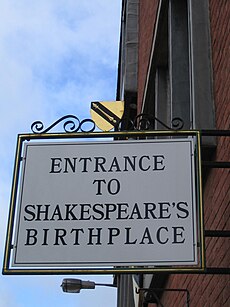Learning in a digital age/LiDA103/Copyright case study/Question 2
From WikiEducator
Jump to: navigation, search
Case study
Completing a digital assignment on Shakespeare's Hamlet
- The full text of Hamlet edited by Charles Kean who died in 1868.
- An image of the portrait of Hamlet, by William Morris Hunt (1824 - 1879) housed by the Boston Museum of Fine Arts.
- A digital copy of the Cobbe portrait of William Shakespeare recently discovered in March 2009. (See press release published by The Guardian.)
- A local copy of the BLC production of Hamlet from Youtube.
- Theresa has compiled a slide show with an audio summary which she will host on Slideshare. Her slide show was based on her own original research work drawing on a winning essay published by Penguin on the Signet Essay Competition site, openly accessible on the web.
Question 2: Photograph of the portrait of Hamlet by William Morris Hunt
Questions relating to the copyright of the image of Hamlet
(This question refers to this image of Hamlet.)
- Choose the correct option. Afterwards, we suggest that you review the feedback on the incorrect options as these also contain valuable information.
- The copyright of this image of Hamlet belongs to:
- William Morris Hunt, the original artist.
- Incorrect. The original painting by William Morris Hunt is in the public domain, therefore it is permissible to make copies of the original work without permission. However, the copyright of the photograph belongs to the photographer or the institution/person who commissioned the photograph.
- the photographer.
- Incorrect. Usually the copyright of a photograph belongs to the photographer. However, in this instance it is a commissioned work by the Museum of Fine Arts, Boston, Massachusetts as the website provides a clear link to obtain licensing permissions for reusing the image.
- Museum of Fine Arts, Boston, Massachusetts.
- Correct. The copyright of this image belongs to the Museum as indicated by the link to obtain licensing permissions for reuse, notwithstanding the fact that the original painting is in the public domain.
- the public domain.
- Incorrect. The original painting is in the public domain, and it is permissible for a photographer to make a copy (photograph) of a work in the public domain. However, if the photographer does not release the work into the public domain or provide an open content license, the photograph is all rights reserved. Projects like the Wikimedia Foundation argue that copyrighting faithful reproductions of works in the public domain is an assault on the public domain and will host a version of the image on the Commons.
- William Morris Hunt, the original artist.
- Do the same provisions for the term of copyright still apply to a photograph of a work that is in the public domain?
- Yes
- Incorrect. Generally speaking the answer is yes, however the specific term of the copyright of films and photographs may differ from standard duration of copyrighted works depending on your national copyright legislation. In some countries the term is calculated from the date of publication and not from the year in which the copyright holder dies. Consult your national legislation.
- No
- Correct. The term of copyright for film and photographs may differ depending on your national copyright legislation. Consult your national legislation for the duration of copyright.
- Yes
- Can Theresa include a copy of this image of Hamlet in her course materials on the grounds that the photo is a "reproduction" of a work in the public domain?
- Yes
- Incorrect. Legally, Theresa is not permitted to include a photograph of a work in the public domain without obtaining the necessary permissions from the photographer / copyright holder. However, restricting general public access to works in the public domain disregards the intent of the public domain. In this example, Theresa is not critiquing the art work, so these exceptions are not likely to apply. (Note that Theresa's university may be party to negotiated rights to use images and film in return for the payment of a licensing fee.)
- No
- Correct. However, this represents a disregard for the intent of the public domain. (Note that your institution may be party to negotiated rights to use images and film in return for the payment of a licensing fee.)
- Yes
